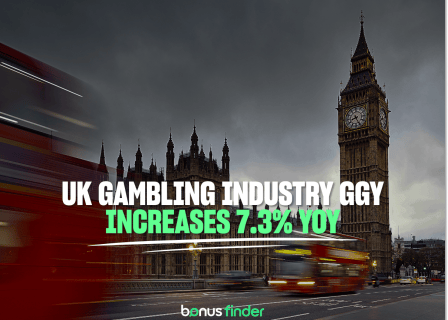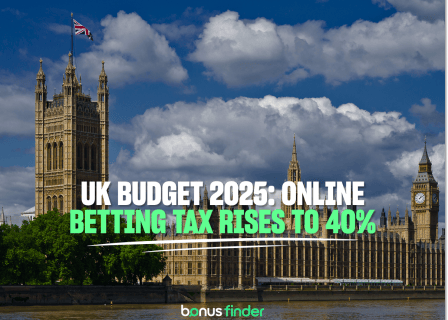The UK Gambling Commission (UKGC) is preparing to tackle challenges proposed by online casino cryptocurrency gambling within the next two years, according to CEO Andrew Rhodes.
Speaking at the regulatory body’s annual CEO Briefing 2025, Rhodes explained that the expansion of crypto interactivity among “younger demographics” places pressure on the system to integrate cryptocurrency payments so as not to exclude certain player profiles:
“The growth in cryptocurrencies amongst younger demographics means that there is a pressure building within the system. The reality is, in some years to come there will probably be a significant cohort of consumers who use cryptocurrencies because that is what they’re accustomed to. It is a demographic shift that will find they have no place in legitimate industry because of the currency they use.”
Whilst aware of increasing demand for cryptocurrency gaming, Rhodes acknowledged that this “problem” has reared itself earlier than anticipated: “That is a challenge that probably didn’t really exist in few years ago, or not at this level, and as I said in my speech two weeks ago, what I thought was a five year away problem, perhaps a year or two ago, I think is now 18 months to two years challenge.”
However, Rhodes remained coy when discussing potentially licensing cryptocurrency gambling – branding the issue a government responsibility.
“But that’s not me committing to saying we’re going to start licensing crypto. This is going to have to be a government level discussion and it is a government level decision because once you open that door, you cannot close it.”
Pertinently, he also pointed to a general widespread misunderstanding of the UKGC’s industry role in terms of enforcing policy. Rhodes explained that his team operates under rules set out by the Government, rather than producing in-house national gambling laws – such as crypto-facing regulation.
UKGC committed to tackling illegal gambling
In 2022, the UK Gambling Commission introduced its Research and Statistics team to generate informed analyses on the domestic illegal gambling market.
During his speech, Rhodes showcased several key figures demonstrating vital actions taken to mitigate black hat operations. Up to now, the outfit has issued 480 cease and desists to operators and advertisers, successfully taken down 104,192 URLs of 188,297 reported, referred 659 platforms for delisting and blocked 504 websites. Those numbers are expected to increase soon, with the Government to extend “further powers” to the UKGC through imminent Parliament bills.
Reaffirming his commitment to halting illegal operators, Rhodes empathised with players – particularly those who have self-excluded from iGaming facilities – being exploited by criminals, and licensed vendors losing business to black-hat groups:
“There is nothing more exploitative than the illegal market. We are here for all consumers. If they’re self-excluded and they take the choice to not gamble because that’s the right thing for them, they shouldn’t be exploited by criminals, organised crime and unscrupulous people seeking to take that opportunity in the illegal market.
“Likewise, you in the legitimate licenced sector should feel that we are addressing that challenge because while you pay licence fees, you pay taxes, you have regimes to protect consumers, you have to make delicate decisions all the time.”
Rhodes frustrated by inaccurate “narratives” guiding debates
Throughout his address, Rhodes voiced displeasure with the current misrepresentation of figures and frequently misguided narratives driving debates across social media and beyond. To alleviate this issue, the UKGC opted to undertake research spanning two critical topics of discussion: withdrawal times and account restrictions.
Analysis of the former revealed that, between June and September 2024, there were 44.2 million withdrawals processed on UK gaming platforms. Of these, 96.3% cleared automatically, while 3.5% cleared within 24 hours.
Just 0.1% of withdrawals took up to 48 hours to go through – yet, said Rhodes, the “strength of the debate” surrounding withdrawals should suggest weaker processing times.
As for account restrictions, Rhodes clarified that while some operators have barred players for commercial reasons, these figures were not “at the sorts of levels reported” by certain outlets. Again, the UKGC CEO expressed that fervent, ongoing narratives belied the true scale of operator-enforced restrictions.
Another relevant matter presented by Rhodes was that of financial risk – with new data showing that platform-holders are increasingly likely to proactively apply deposit limits on at-risk individuals, particularly those aged under 25; an age group where players may spend more, yet utilise self-limiting tools less frequently than older demographics.
White label sponsorship loopholes a “problem” for licensed UK operators
White label sponsorships have brought heat on the Government, the UKGC and football clubs who have entered partnerships with unlicensed companies.
Between winter and spring 2025, several Premier League clubs received formal warnings for wearing the names of unlicensed online gambling brands across the front of matchday shirts. In Rhodes’ words, this has proven “problematic.”
But, until the Premier League’s self-imposed rules banning gambling sponsors from the 2026-27 season are set into motion, there is nothing that can be done to prevent such deals. As much was confirmed by Rhodes:
“The Commission thinks it is wrong that people are sponsoring football clubs who don’t have a licence in this country. But it is not necessarily automatically an infringement of the licensing objectives, because if they are not taking any traffic from Great Britain, it is difficult to see how that would be an infringement.”
Such lenience was not afforded to iGaming software providers – Rhodes urged operators to undertake “due diligence” before collaborating with developers, following recent suspensions and imminent Commission-led shutdowns against providers who work with illegal platforms.
“There will be no more warnings for those actors. I’m not talking about you, I’m talking about providers who may be also servicing the illegal market. There will be no warnings. We will not accept any excuses. And you should, as a sector, expect to see more enforcement action in the coming weeks and months.”
UKGC funding could run out in 2026 despite deep strategy
The UKGC is funded by operator fees, and not by the taxpayer, with reviews held every five to seven years. In turn, articulated by Rhodes, the regulatory body’s income “is not linked to inflation or any uprating.”
A 2024 review rescheduled for the end of 2025 saw the organisation fund recent studies, analyses and action using leftover cash accumulated over four years prior, with no further resources to pull from:
“This does mean the extra investments we have made in areas like illegal gambling, criminal investigations and data capabilities amongst other areas are not funded beyond the middle of next year, as they have been funded from our excess reserves built up in 2021/22, which will now be exhausted.
“Our programme over the next year is to continue this work as much as we possibly can, while we await an outcome from the pending fees review.”
Only when the UKGC fees review takes place will the body realise its market position over the next several years.









